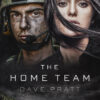Hi! I’m Kathy Ide. In addition to being a published author, I’m a full-time professional freelance editor. For CAN, I’m blogging about “PUGS”–Punctuation, Usage, Grammar, and Spelling…tips for writers based on the most common mistakes I see in the manuscripts I edit. Each blog post will have one tip for each of the four categories, as well as a reason it’s important for authors to “polish their PUGS.” (For more PUGS tips, check out my website, www.KathyIde.com, or get a copy of my book “Polishing the PUGS” (available through the website or at the conferences where I teach). If you’re interested in working with a freelance editor (or know someone who is), e-mail me through the contact page of my website. Or go to www.ChristianEditor.com to get referrals to other established, professional editorial freelancers. Or go to www.ChristianManuscriptCritique.com if you’d like an overall critique. If you’re a freelance editor yourself, or think you might be interested in that field, check out www.TheChristianPEN.com.
WHY POLISH YOUR PUGS?
PUGS errors can give Christians and Christianity a poor reputation with the world.
A few years ago, James Dobson expressed concern over a children’s video called “We Are Family.” Keith Olbermann, a nationally known commentator, derided Dr. Dobson for getting so upset about this video. He received a couple of thousand e-mails from concerned Christians who agreed with Dr. Dobson’s views. But he said that many of those e-mails contained gross typos and errors in punctuation, usage, grammar, and spelling. He included a few examples on his Web site, using them as “proof” of how stupid Christians are. And yes, he used the word stupidity.
The world watches Christians carefully, just waiting for us to make mistakes, actually hoping we will make mistakes so they can “prove” that Christians are stupid and, therefore, that Christianity is only for the uneducated and easily duped.
As Christian authors, we are even more closely scrutinized and criticized than the general public. Many people in this country refuse to buy or read Christian books because they don’t think our books are as well written as those that are published by the secular press. They consider Christian writers and publishers “inferior.” And if they find errors in a Christian book, they will use those errors as “proof” of their point.
Let’s not give them any fuel for the fire of that argument. Polish your PUGS so that your work reflects positively on your faith and your Lord.
PUNCTUATION TIP:
US book publishers and popular-style magazines use The Chicago Manual of Style for punctuation rules (and Merriam-Webster’s Collegiate Dictionary for spelling). Newspapers and journalistic-style magazines go by The Associated Press Stylebook (and Webster’s New World College Dictionary).
USAGE TIP:
affect/effect
affect (always a verb, except for one use as a noun in psychology) means “to influence” or “to cause a response.”
“This article will affect the reader’s thinking.”
affect (verb) can also mean “to assume,” “to be given to,” or “to pretend.”
“Deborah affected a silly manner of speaking.”
effect (noun) means “result” or “accomplishment.”
“What was the effect of this appeal for money?”
effect (verb) means “to cause” or “to bring about.”
“The new manager will effect major changes in our sales methods.”
effects (plural noun) means “goods” or “property.”
“The deceased man’s effects were willed to charity.”
GRAMMAR TIP:
different from vs. different than
Things and people are different from each other.
“This guy is different from the others I’ve met,” Becky said.
“Writing is different from speaking,” Colleen said.
Different than is a convenient shortcut for “different from the way in which.” It can be used when comparing action verbs.
He acts different than he talks.
SPELLING TIPS:
handmade (one word, no hyphen)
homemade (one word, no hyphen)
man-made (hyphenated)


sewa mobil jakarta
August 3, 2012 - 12 : 53 : 19Nice article, thanks for sharing.